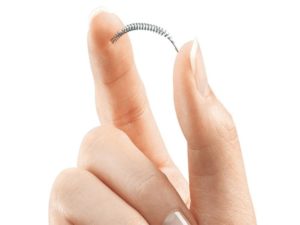Conceive After Permanent Birth Control in Tucson
 Permanent pregnancy prevention is a decision that must be well thought out, thoroughly discussed, and agreed upon 100 percent by both parties in the relationship. It should only be undertaken if the woman and man are absolutely convinced they wish to not have any children at all or any more than they already have in their family.
Permanent pregnancy prevention is a decision that must be well thought out, thoroughly discussed, and agreed upon 100 percent by both parties in the relationship. It should only be undertaken if the woman and man are absolutely convinced they wish to not have any children at all or any more than they already have in their family.
Yet, circumstances change. In time, one partner or the other may regret making the decision to undergo a tubal ligation or a vasectomy. In some instances, relationships dissolve and a new partner expresses the desire to have children. What can be done? Is there such a thing as reversing a pregnancy prevention procedure? Can you still conceive after permanent birth control in Tucson?
If you are asking those questions about your own personal relationship, then you need to meet with Dr. Scot Hutchison at the Reproductive Health Center. His answer to your inquiries about conceiving after vasectomy or tubal ligation would be, “Yes, it is possible.” Since 1995, Dr. Hutchison and his sister Holly have helped patients realize their dream of giving birth to a healthy baby. Their time spent co-directing Assisted Reproductive Technologies at the world-renowned School of Medicine at Johns Hopkins Medical Institutions has given them the experience necessary to instill confidence in patients who come to them for help.
[videoplay autoplay=”0″ videourl=”https://ivftucson.com/clips/RHC_Walkthroughlow.mp4″ bgimg=”” cssclass=”myclassVideo”]I had my “tubes tied”. Now I want to have children. What can be done?
Having your tubes tied means you underwent a procedure called “tubal ligation”, in which your fallopian tubes were tied, cut, or blocked to permanently prevent any chance of becoming pregnant. The ligation prevents an egg from traveling through your fallopian tubes to meet up with sperm. To reverse the situation requires major abdominal surgery that is much more complicated than the ligation. Fallopian tubes can be reopened, yet there is a chance that they can’t be successfully unblocked, untied, or reattached to allow you to conceive after permanent birth control in Tucson. According to Dr. Hutchinson, “even if we successfully reverse the tubal ligation, there is no guarantee the patient can or will become pregnant. “
Can reversing a vasectomy allow for pregnancy to occur?
Undoing a vasectomy requires major surgery with no guarantee that the male will be able to fertilize an egg. Following a vasectomy, antibodies can form within the man’s body that can prevent him from producing sperm healthy enough to fertilize an egg. Success rates for pregnancy after vasectomy are no higher than 50 percent.
What are the alternatives to reversing a tubal ligation or vasectomy?

If you and your partner are at a crossroads in your life about reversing permanent pregnancy prevention, and you want advice from an experienced, caring professional, please schedule an appointment with Dr. Scot Hutchison by reaching out online or set up a consultation by calling the Reproductive Health Center at 520-214-6756.
Share This Story!
Contact Information
Related articles
Hutchison’s Huddle: Embryo Grading
When an embryo is created in the lab at RHC, [...]
Hutchison’s Huddle: Unexplained Infertility
You and your partner have done all the tests. You've [...]
Hutchison’s Huddle: What to Expect at Our Office During COVID-19
It's the time our patients have been anxiously waiting for--we [...]
